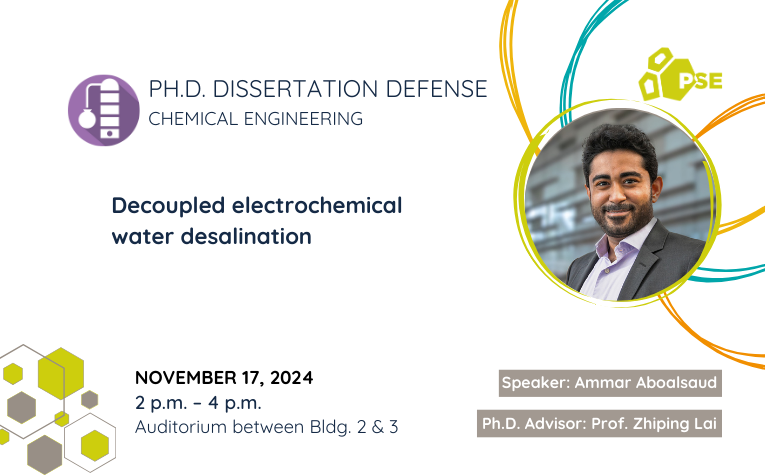Nov 2024
Decoupled electrochemical water desalination

Abstract
Freshwater scarcity is becoming an increasing threat to our way of life. Although water is essential and irreplaceable for the survival of our species, our uses of freshwater are not limited to drinking, but extends to household use, irrigation, as well as many others. Therefore, many various technologies have been developed to desalinate salty water into freshwater. While scientists have developed many different efficient processes to desalinate water, they are still unable to solve the freshwater shortage crisis around the world. This is in part due to the fact that water desalination plants cannot cover all areas in every country, including remote areas. The most mature and common desalination technologies, such as Reverse Osmosis (RO), require sizeable equipment, making the processes unportable. On top of that, RO produces large amounts of high salinity brine that is usually disposed of back in the sea. This brine, however, can have adverse environmental impact to the marine life ecosystem in the sea upon disposal.
In this study, a new process for water desalination that uses a decoupled electrochemical cell is introduced. In this desalination method, the electrodes are made from material that can change its valency state allowing salt ions to combine with it and intercalate into its crystal lattice structure. This method uses electric potential difference to drive the ions towards the electrodes, and to force the change in valency in the material of the electrodes. Desalination results from this study show that this is, in fact, a promising procedure that can desalinate water to levels accepted for irrigation and drinking. A preliminary power requirement analysis shows that the process is energy efficient, with power requirements that can be satisfied using a solar cell, which allows this technology to become portable and integrable into portable desalination devices. The decoupled design of the process allows the electrodes to auto-regenerate, increasing the life span of the electrodes used in this process. In addition, the technique precipitates the salt removed during the desalination process in the form of solid crystals, minimizing the production of brine, and allowing for a straightforward recovery of the minerals removed. Furthermore, the process can be designed to reduce the salinity of the water to virtually any lower desired level.